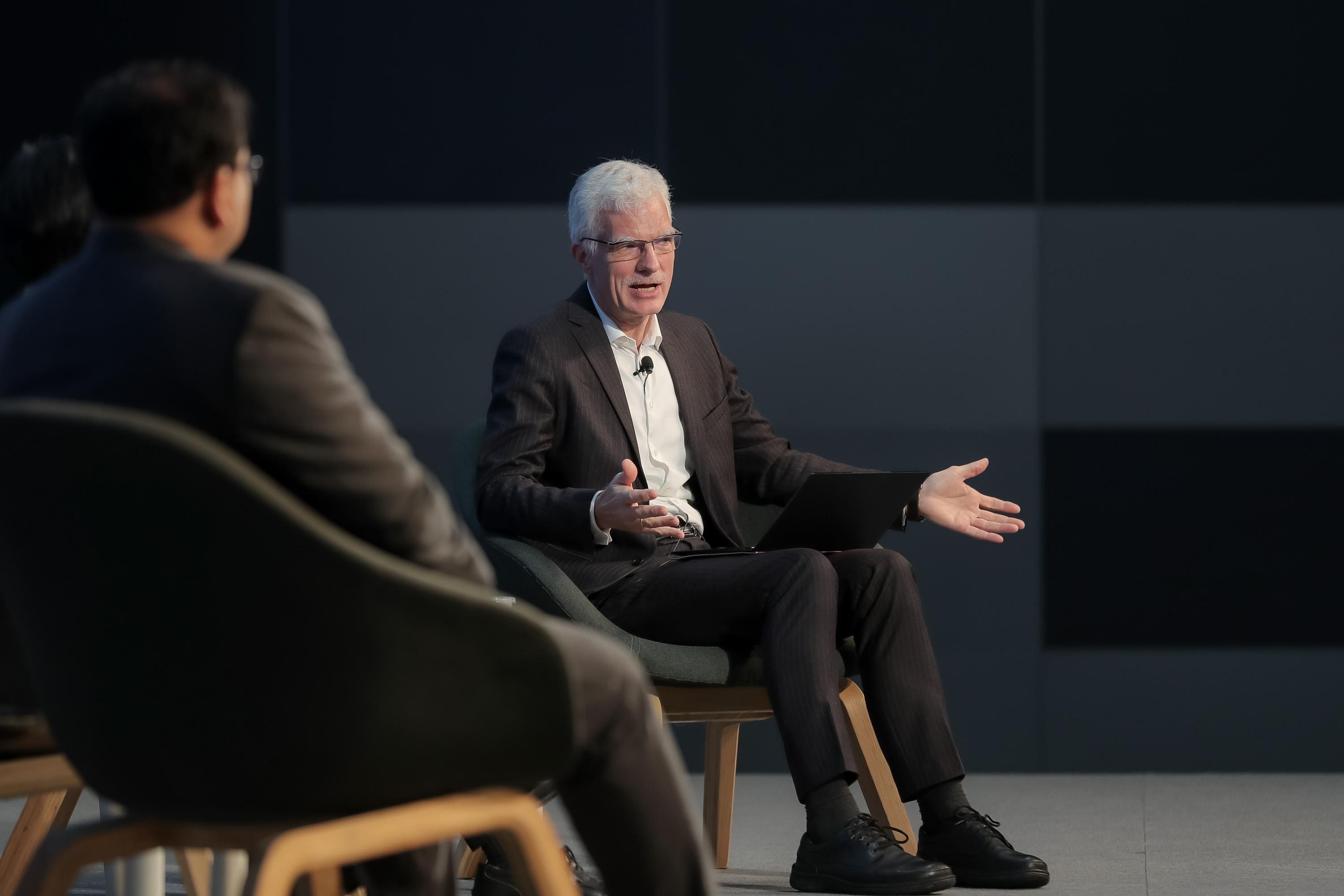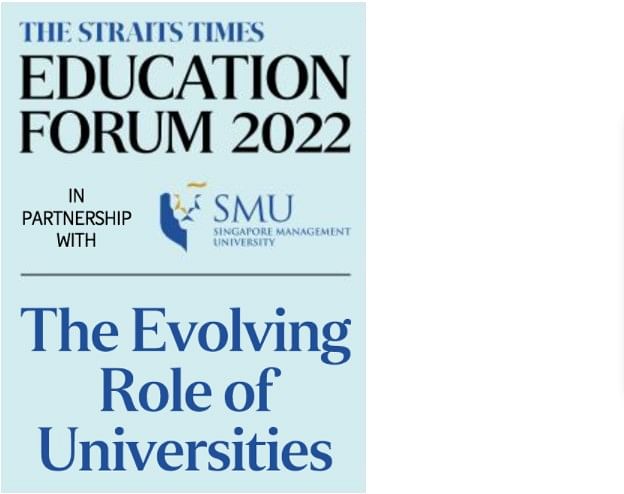Singapore must focus on older workers to close inter-generational skills gap: OECD education chief
Sign up now: Get tips on how to help your child succeed

OECD special adviser on education policy Andreas Schleicher speaking at the ST Education Forum on Feb 10, 2022.
ST PHOTO: GAVIN FOO
SINGAPORE - As a victim of its own success, Singapore must address its growing inter-generational skills gap by focusing more on older workers, said Mr Andreas Schleicher, the director for education and skills at the Organisation for Economic Cooperation and Development (OECD).
"The faster young people move forward in education, the more older workers are left behind," he said on Thursday (Feb 10).
"And that is reinforced by the focus of your universities on only the young and the older people who are already highly skilled."
According to OECD data, Singapore is currently the country with the largest inter-generational skills gap, said Mr Schleicher during a panel discussion on the evolving role of universities at The Straits Times Education Forum 2022, held in partnership with the Singapore Management University (SMU).
"The labour market in Singapore is very good at extracting value from the skills of people. So if you've got the right skills in Singapore, your economy is transforming them into better jobs, into better lives for people," he said.
This is quite different from other countries in Asia where there is a mismatch in skills and jobs available, noted Mr Schleicher, who is also special adviser on education policy to the secretary-general at OECD.
This also means that fewer than one in 10 workers in Singapore have better skills than what they need for their current job, he said, and there is a very thin layer of "surplus skills" as most are already in use.
To meet rapidly evolving labour demands and see significant productivity gains, Singapore must shift its focus to older workers, he added.
"Universities basically need to pay a lot more attention to those who have already graduated - that is the only kind of pool that is still untapped," said Mr Schleicher.
"We used to learn to do the work, that was the past, and now learning is that work".
He said the Covid-19 pandemic has helped push societies worldwide to think about learning in a more creative manner beyond obtaining traditional qualifications.
"And what we see in the OECD (is that ) the countries that advance fastest have actually developed very, very good ways of recognising granular learning, and then giving people, employers signals of skills that you currently have, rather than the degree that you want to obtain in your life," he added.
Mr Schleicher said that despite the SkillsFuture movement - which he described as pathbreaking - many Singaporeans still value academic learning as the major route to success. "And of course, academic credentials will always carry cultural value beyond the economic dimensions."
But change is on the way, as more employers are able to see beyond degree qualifications and recognise value in skills and knowledge that people have, he said.
"And universities still need to get that message and advance from lumpy and long degrees to a much more granular way of learning, he said, by giving people greater ownership over learning.
Mr Schleicher said traditional academic disciplines are unlikely to disappear, but people will increasingly need to think across boundaries to manage problems of the future. "The kind of things that are easy to teach and easy to learn have also become easily digitised," he said.
Acknowledging the changing role of universities, SMU president Lily Kong said: "Universities are used to working with young people... but as we begin to work with adult learners, one of the things that we realised is that the traditional approach (of teaching) is just not going to work.

"People don't have the time to sit through your first six weeks of theory and foundation before you actually get to the application of it."
Hence, SMU has been exploring different teaching methods like co-creating and co-delivering content and skills with industry partners like KPMG and Google, she added.
Increasingly, adult learners at the institution can also work on real-world projects that can fulfil both their classroom and workplace demands, she said.
"So it's not an artificial divide between the world of learning and the world of practice; they are seamlessly integrated.
"The more we can develop these sorts of approaches, the more people would be willing and see the value and relevance of continuing learning."



